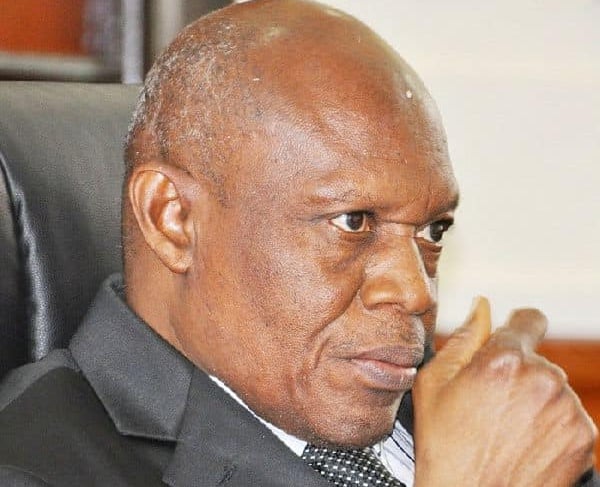Justice Atuguba Defends Chief Justice’s Removal, Dismisses Political Conspiracy Claims
Retired Supreme Court Judge, Justice William Atuguba, has vehemently refuted allegations of a political conspiracy behind the removal of Chief Justice Gertrude Torkornoo. The dismissal has ignited a fierce political debate, with the opposition New Patriotic Party (NPP) accusing the Mahama administration of compromising judicial independence and threatening retaliatory removals of judges appointed under the current government should they regain power. Justice Atuguba categorically rejects these threats as irresponsible, framing the President’s decision as a legitimate exercise of executive authority grounded in the Constitution, rather than an act of political vendetta. He argues that pre-election manifestos outlining intended actions upon assuming office legitimize such decisions, dismissing the notion that governance should occur without a pre-determined program.
Central to Justice Atuguba’s argument is the concept of “stated misbehaviour,” the constitutional clause invoked for Chief Justice Torkornoo’s removal. He points to the precedent of former Electoral Commission Chairperson Charlotte Osei and former CHRAJ Commissioner Lauretta Vivian Lamptey, both removed under the same clause during the NPP’s tenure, without similar objections. He questions the NPP’s sudden shift in stance, highlighting what he perceives as a double standard applied solely when their own appointee is affected. This, he contends, underscores the inconsistency and politically motivated nature of the NPP’s criticisms.
Justice Atuguba further challenges the notion of “payback” as the underlying motive for the Chief Justice’s removal. While acknowledging the potential for such motivations, he questions the evidence supporting this claim and provocatively suggests that if payback were indeed the motive, it might be a justifiable one. This pointed remark underscores the deep-seated tensions and mistrust between the ruling National Democratic Congress (NDC) and the opposition NPP, reflecting broader concerns about the politicization of the judiciary.
The controversy surrounding Chief Justice Torkornoo’s removal highlights the delicate interplay between executive authority, judicial independence, and political maneuvering. Justice Atuguba’s defense of the President’s action emphasizes the constitutional basis for the removal, placing it within the context of established legal procedures. He challenges the narrative of political interference, framing the decision as part of a broader reform agenda envisioned by the ruling party. His references to the NPP’s previous actions under the same constitutional clause aim to expose what he sees as their hypocritical stance, driven by partisan interests rather than genuine concern for judicial integrity.
The NPP’s counterarguments, centered on allegations of political motivation and threats of future retaliatory actions, raise fundamental concerns about the stability and independence of the judiciary. Their warnings of reversing judicial appointments based solely on the appointing government’s political affiliation suggest a potential erosion of judicial impartiality. This approach, if implemented, would further politicize the judicial branch, creating a cycle of appointments and dismissals driven by political winds rather than merit and judicial performance.
The ongoing debate reveals a deeper struggle for control over key institutions within the Ghanaian political landscape. The judiciary, a critical pillar of democracy, becomes a battleground for political influence. Justice Atuguba’s forceful defense of the President’s action and his critique of the NPP’s response represent an attempt to safeguard the judiciary from what he perceives as undue political interference. The broader implications of this controversy extend beyond the immediate removal of a Chief Justice, raising fundamental questions about the future of judicial independence and the balance of power within Ghana’s democratic system. The escalating tensions between the ruling NDC and the opposition NPP, reflected in this dispute, threaten to further polarize the political climate and erode public trust in the impartiality of state institutions. The future of the Ghanaian judiciary hangs in the balance, dependent on the ability of its leaders and political actors to navigate these complex issues with wisdom and restraint.


